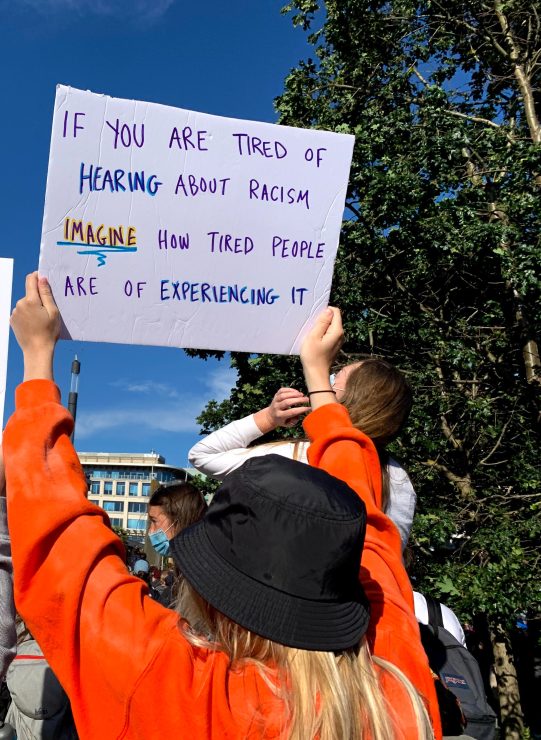Why education and fostering conversation are the way to empathy and respect

Photo by Chloe Latour.
As a woman of colour who immigrated to a predominantly white city in Canada, I experience racism regularly, whether intentional or not. Often comments or questions made about my ethnicity, upbringing, and experiences are discussed in settings with people who are blissfully unaware or have never experienced discrimination because of their race. The subtlety of these comments allows them to go unnoticed and undiscussed. This is known as casual racism.
Casual racism encompasses the subtle yet harmful, speech, behavior, and body language that marginalizes people of racialized backgrounds and upholds racist beliefs. Those who experience casual racism have negative mental health outcomes, and decreased access to healthcare services and education. If you’re unsure of what this looks like, an example of this could be making assumptions about someone’s abilities or intelligence based on their race, therefore limiting their career opportunities. It can invalidate and exclude the difficult experiences endured by people of colour by perpetuating stereotypes and minimizing the harmful impacts of systematic racism.
People of colour experience these situations all too often, and Jaahnavi Kandula’s story is an unfortunate example. Kandula was a 23-year-old student who immigrated from India to study in Seattle. In January of 2023, Kandula was fatally struck by a city police car responding to a call.
Recently, body-camera footage of an officer discussing her death was released, unleashing outrage from the South Asian community. The officer’s casual comments regarding her “limited value” and his mockery of her death sparked rallies, conversations, and petitions to demand justice for Kandula and her family. These casual attitudes towards her death uphold the institution of racism, continuing the pattern of casual racism. Her story serves as a powerful platform for a larger discussion about how harmful comments and actions can cause distress and trauma that is cyclical and damaging.
One vital aspect of addressing casual racism includes holding offenders accountable and ensuring that there is adequate education on the subject. Police misconduct against racialized groups is not new and disciplinary action must be taken in situations like these. In my experience, many people of colour have a deep mistrust of the police and governmental systems. To work on rebuilding relationships, we must address stereotypes, slurs, and harmful subtle behaviors toward those of racialized backgrounds to dismantle systemic oppression.
Combating casual racism can start with being aware of and challenging our biases. Teaching individuals what it means to understand and respect those from different ethnic backgrounds is vital to supportive communities free of the biases of casual racism.
Moving forward, Kandula’s story should motivate us to speak up and fight against casual racism. This can be achieved by calling on institutions, communities, and individuals to examine, address, and confront racist attitudes and take concrete steps to change ourselves and our communities. Let’s work on creating an environment where we respect each other’s backgrounds and approach all with kindness and inclusivity while ensuring we are held accountable for our actions.






